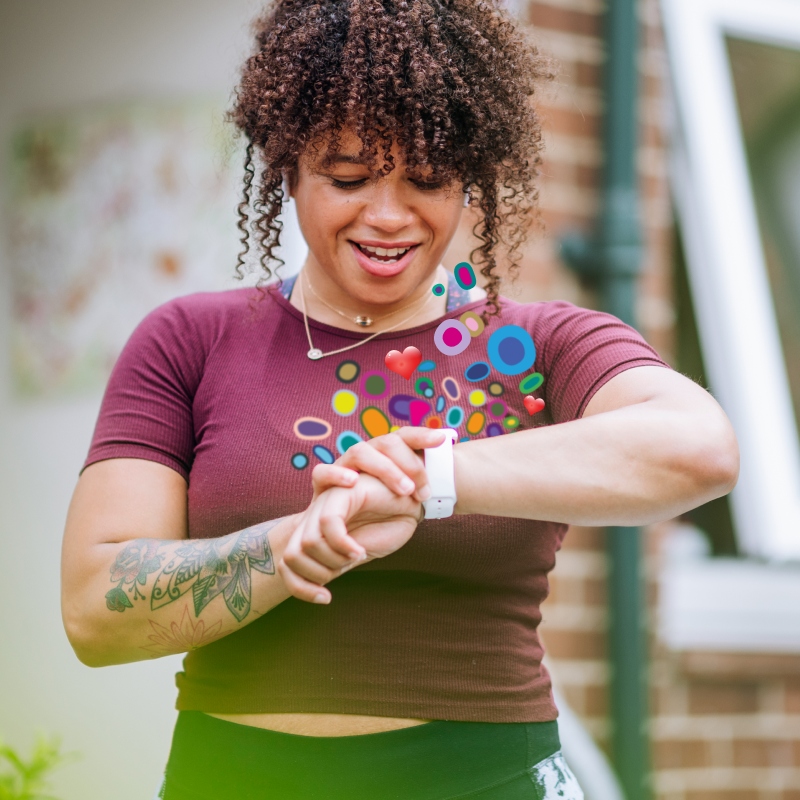Written by Medibank
January 2024
Having a regular Heart Health Check is recommended to men and women aged 45 years and over, or 30 years and over for Aboriginal and Torres Strait Islander peoples. However, 64 per cent of people in those age groups haven’t had a heart check in the last 2 years.1
If your partner is overdue for a Heart Health Check, there are things you can do to encourage them to book an appointment.

How to explain the benefits of a Heart Health Check
Psychotherapist Alison Howarth suggests going against your natural instincts. In other words, focus on the opposite of what you think will convince them. “So, rather than highlighting the potential negatives of not attending, focus on the positives of booking and attending that appointment,” she says.
For example, highlighting the potential negatives of not attending might involve:
- reeling off the heart disease risk factors you think your partner might already have and reinforcing how dangerous they are if left untreated.
- reminding them that stroke and heart attacks are not only common, they’re often fatal and avoiding a Heart Health Check means they might be more likely to have one.
- saying that by not attending a Heart Health Check, they could be putting their life at risk.
In contrast, focusing on the positives of having a Heart Health Check could involve:
- mentioning that Heart Health Checks are really effective – if people had them once every 2 years as recommended, they could prevent tens of thousands of heart attacks and strokes in Australia each year.
- mentioning how much better you feel having visited the doctor – perhaps even for your own Heart Health Check – recently.
- highlighting that most heart disease risk factors can be easily managed once identified.
- highlighting how quick, simple and non-invasive Heart Health Checks are. You could also offer to make the appointment for them, or better yet, make an appointment for both of you, if you’re also overdue for a Heart Health Check.
Before you talk to your partner, make sure you understand what a Heart Health Check involves.
What if my partner still doesn't want to book a Heart Check?
“It’s very important to respect your partner’s decisions,” says Alison, “remembering that someone else’s choices are beyond your control and that you can’t force another person to do anything."
“But I think it can be valuable to say ‘look, I totally respect your decision, but can we talk about it?’. Then, just sit in that curiosity space, because curiosity is typically non-judgemental. You could say something like, ‘I’m really curious to learn how and why you’ve made that decision and what’s behind it?’ to keep the conversation going, while reducing the risk of them becoming defensive."
“Importantly though, don’t pin your sense of worth on being able to change their mind,” says Alison. “The only thing we have control over is our own emotions, thoughts and actions and the more you try and control someone else’s choices, the more disappointed and frustrated you’ll become if you don’t get the result you want.”
Why might they be reluctant to get a Heart Health Check?
There may be several reasons, and Alison says fear could be one of them. “Often, people are scared to go to the GP or to get a health check because they don’t want bad news."
“Our emotions drive our thoughts, which drive our actions. So, if something seems difficult emotionally, it naturally becomes a very low priority for us or even something we become quite resistant to doing.”
Someone could be having these fear-based feelings even if they’re not willing to admit it. “People don’t usually like to admit they’re scared,” Alison says. “As a partner, it can be worth acknowledging that fear may be playing a role, being empathetic about it and reinforcing that you’re there to support them, both while you’re waiting for results and afterwards, too.”
Are Heart Health Checks free?
In Australia Heart Health Checks are covered by Medicare. This means that if you visit a GP clinic that bulk bills this service, your partner can get a Heart Health Check for free.

24/7 Medibank Nurse Support
Medibank health insurance members can speak to a registered nurse at no extra cost.1 Chat over the phone or online, any time of the day or night.
1 Some referred services may involve out of pocket costs and waiting periods may apply.
5 tips for helping your partner improve their heart health
If your partner has or hasn’t had a Heart Health Check, there are things you can do to encourage them to adopt healthier habits for their heart, including:
1. suggesting small, measurable changes
Rather than trying to implement big, sweeping changes to your lifestyle, such as ‘we need to start living healthy!’ or resolving to eat kale with every meal, start by making small, measurable ones,” says Alison. “It might be something as simple as agreeing to swap the butter on your toast in the morning for something healthier, remembering that small steps now can have huge gains later on.”
2. making it easy
Research suggests that for long-term success, any goals you set must be very achievable. “This will look different to every couple,” says Alison. “For example, it might be a goal of going for a walk together after dinner. Then, all you have to do is put your walking shoes on after you’ve eaten, walk to the end of your street, see how you feel and decide whether to go a bit further. It’s about removing friction and making it as easy as possible to take those healthy steps.
3. being a role model
Some research shows that when one partner makes a healthy change, such as increasing their physical activity or improving their diet, their partner is more likely to do it too. “Take care to be a positive role model without preaching to your partner,” says Alison. “Focus on the benefits you’re enjoying having taken up yoga or swimming, like sleeping better or less back pain, instead of repeatedly asking them to join you, which could seem judgemental.”
4. trying to have fun
Research shows that with exercise, we’re more likely to keep doing it if it makes us feel good. Focusing on what’s called ‘external stimuli’ can produce this effect. It might be paying attention to beautiful scenery or listening to some happy music or your favourite podcast, rather than focusing on how your body feels while you’re moving.
“If you’re experiencing resistance from your partner to join you, this can also be a great opportunity to demonstrate how enjoyable physical activity can be,” says Alison. “When you get home from a long walk with your dog and share that you both had the best time and your dog was so excited and happy, not only are you focusing on the positives of being active for yourself, you’re giving your partner a reason to want to join in so that they don’t miss out.”
5. focusing on the long term.
This can help shape the behaviour changes you choose to make, because they must be sustainable if you want them to stick. Alison says it can also be helpful to accept that your partner might not jump on board straight away. “Keep in mind that people aren’t static and unchanging,” she says. “We’re constantly changing, so even if your partner continues to make choices that aren’t particularly healthy right now, remind yourself that tomorrow is another day. All you can do is keep making your own healthy choices and then be there to support them when they decide they want to be part of that journey, too.”

Live Better rewards
Live Better rewards is Medibank’s health and wellbeing program inspiring, supporting and rewarding you to eat, move, and feel better, all while enjoying the things you do every day.
Medibank members with eligible hospital or extras cover could earn up to $400 worth of rewards every year from our range of partners or even get discounts on premium payments, by redeeming the points earned for tracking healthy actions. Plus, if you shop with our partners, you could earn even more points!~
Read more about heart healthy living
Looking for something else?
Visit Heart health for more information.
Things you need to know
1 RACGP; Most eligible patients ‘have not had recent heart checks’; retrieved June 2023
~ Medibank Live Better Challenges & Goals Earning Policy: The participant of a Medibank Live Better Challenge or Goal may not receive Live Better points or may have their already credited Live Better points reversed in accordance with the Medibank Live Better terms and conditions. To earn Live Better points, the participant needs to properly complete 100% of the eligible Challenge according to the instructions. The number of Live Better points available for Medibank Live Better Challenges and Goals is subject to change without prior notice. The maximum number of Live Better points that each Medibank Live Better member can earn from successfully completing health and wellbeing Challenges, Goals or any Onboarding action in a calendar year is 40,000 Live Better points. To the extent of any inconsistency between this Policy and the Medibank Live Better terms and conditions, the terms and conditions will take precedence.
While we hope you find this information helpful, please note that it is general in nature. It is not health advice, and is not tailored to meet your individual health needs. You should always consult a trusted health professional before making decisions about your health care. While we have prepared the information carefully, we can’t guarantee that it is accurate, complete or up-to-date. And while we may mention goods or services provided by others, we aren’t specifically endorsing them and can’t accept responsibility for them. For these reasons we are unable to accept responsibility for any loss that may be sustained from acting on this information (subject to applicable consumer guarantees).










